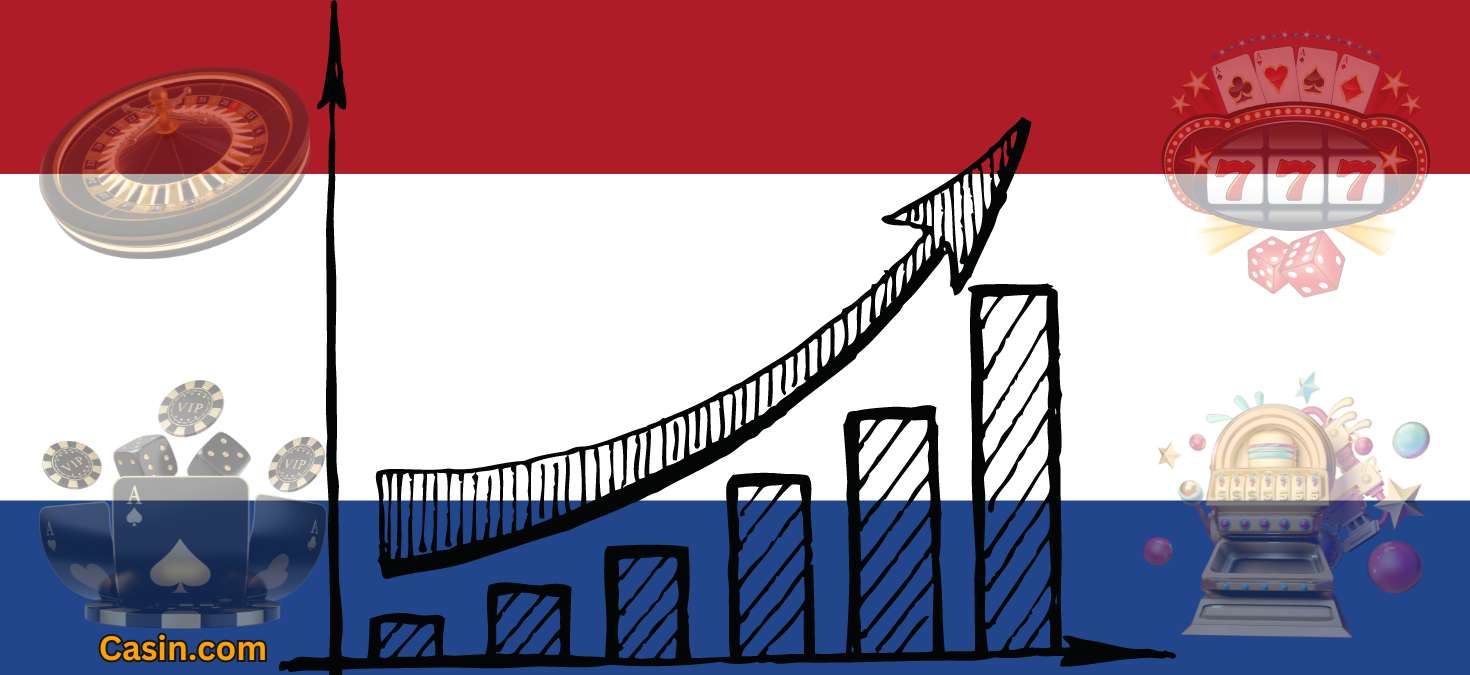
Exploring the European Gambling Landscape – The Netherlands’ Booming Online Market

Published: April 15, 2024 | Author: Ron Clarke
As part of our ongoing series examining the gambling markets across Europe, which has already covered Spain, Portugal, and Sweden, this article turns its focus to the Netherlands. The Dutch market has shown significant dynamism, especially in the world of online gambling, spurred by recent regulatory developments and robust market growth.
Regulatory Framework
In the Netherlands, the online gambling market opened on October 1, 2021, following the enactment of the Remote Gambling Act. This legislation was designed to modernize the gambling regulatory framework, aiming to channel players towards legal and regulated offerings and away from the black market. A key component of this regulatory framework is the licensing system that ensures all operators meet strict conditions regarding safety, game fairness, and responsible gambling practices. Additionally, the introduction of tools such as the Central Register for Exclusion of Gambling (Cruks) and targeted support services like Loket Kansspel illustrates the country’s commitment to preventing gambling addiction and promoting responsible gaming behaviors.
Sweden’s Online Gambling Market in 2023
Recent findings from the Spring 2024 Monitoring Report on Online Gambling, published by ansspelautoriteit (KSA), the Netherlands’ Gambling Authority, have shown a significant growth in the Dutch online gambling sector for the year 2023. The gross gaming revenue (GGR) witnessed a robust increase, soaring to €1.39 billion, marking a 28% rise from €1.08 billion in 2022. This sector not only expanded in monetary terms but also saw an increase in active player engagement, with the number of player accounts rising from 970,000 in December 2022 to approximately 1.1 million by the end of 2023.
The market’s expansion comes in the wake of the regulatory framework that we mentioned before. According to the report, about 90% of all players opted for legal providers, a figure that surpasses the government’s initial target of 80% within three years following the market’s opening in October 2021. This high rate of channelization highlights the effectiveness of regulatory measures in steering players away from illegal operators.
The analysis also highlights a noticeable shift in advertising strategies following new regulations introduced on July 1, 2023. These regulations, which restrict untargeted advertisements, aiming to reduce gambling’s appeal to vulnerable groups have led to a decline in visible online gambling ads in public spaces and across media platforms. Instead, gambling providers have increased their focus on program sponsorship, adapting to the tighter advertising landscape while maintaining visibility.
The report delves into player behavior, noting that the average monthly loss per player was around €160 over the last six months of 2023. It also reveales that players tend to engage with the gambling platforms over extended periods, with many remaining active for seven months or longer, suggesting a stable participant base with sustained interest.
Furthermore, the Central Register for Exclusion of Gambling (Cruks) saw registrations climb to 63,543 by January 2024, indicating growing utilization of tools designed to combat gambling addiction. This is aligned with increased activity at Loket Kansspel, a national support center for gambling issues, where both informational and help-oriented interactions have seen an uptick following the revamp of the Cruks website.
In 2023, young adults (ages 18 to 23), who are considered a vulnerable group, accounted for 9.8% of the Gross Gaming Revenue (GGR), a proportion that has remained stable throughout the year. This demographic also tends to engage more frequently in sports betting compared to other age groups. Despite their active participation, young adults generally incur lower losses per account – €52 per month on average – which is significantly less than older players. This discrepancy is likely influenced by the lower average income of young adults compared to older adults, highlighting the economic factors that also shape gambling behaviors.
The continuous growth of the online gambling market in the Netherlands, coupled with proactive regulatory and preventive measures, paints a picture of a maturing industry that is both expanding economically and enhancing player safety mechanisms. As the market evolves, stakeholders are closely monitoring these developments to ensure a balanced approach between growth and responsible gambling.